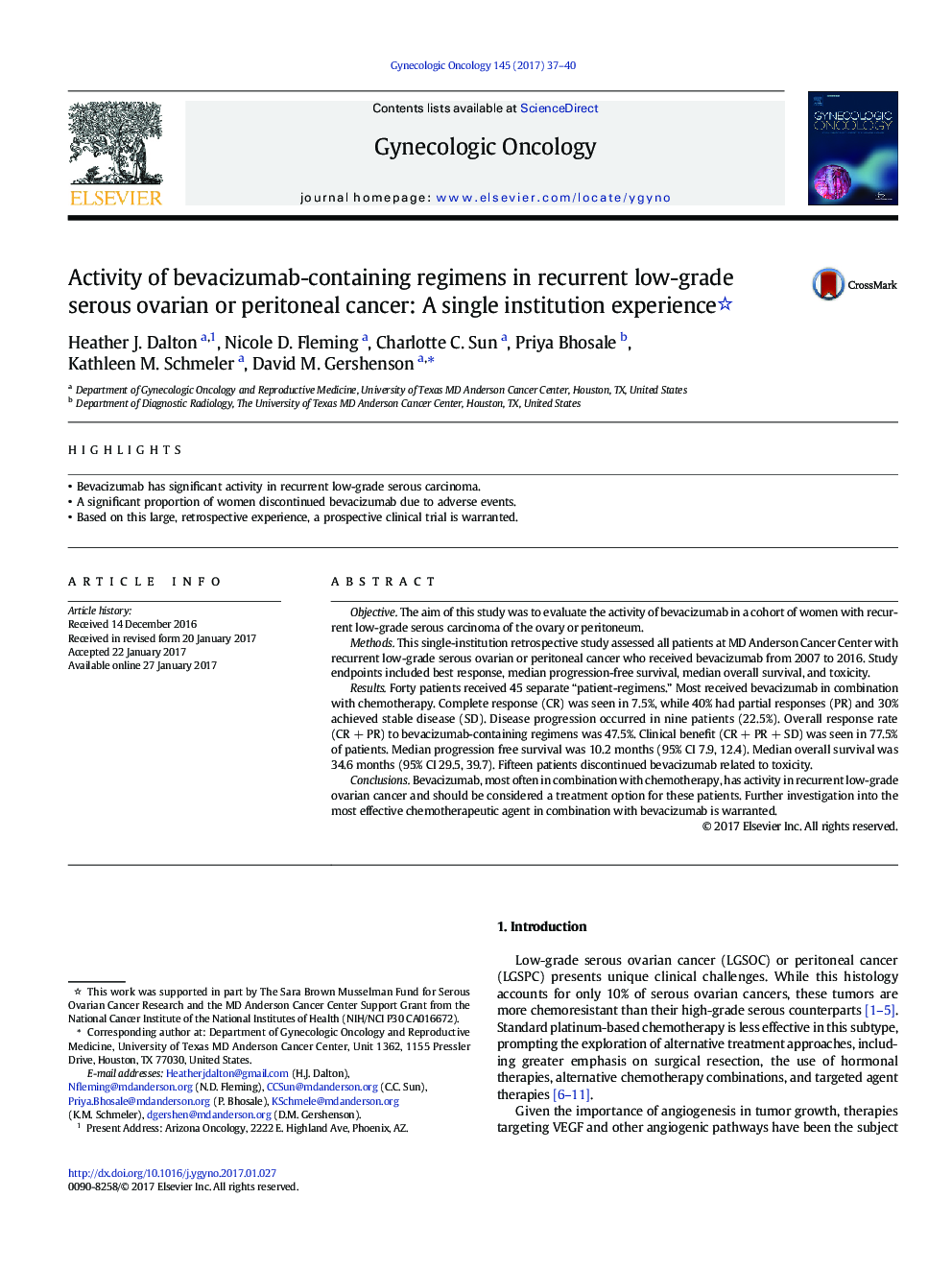| Article ID | Journal | Published Year | Pages | File Type |
|---|---|---|---|---|
| 5695457 | Gynecologic Oncology | 2017 | 4 Pages |
â¢Bevacizumab has significant activity in recurrent low-grade serous carcinoma.â¢A significant proportion of women discontinued bevacizumab due to adverse events.â¢Based on this large, retrospective experience, a prospective clinical trial is warranted.
ObjectiveThe aim of this study was to evaluate the activity of bevacizumab in a cohort of women with recurrent low-grade serous carcinoma of the ovary or peritoneum.MethodsThis single-institution retrospective study assessed all patients at MD Anderson Cancer Center with recurrent low-grade serous ovarian or peritoneal cancer who received bevacizumab from 2007 to 2016. Study endpoints included best response, median progression-free survival, median overall survival, and toxicity.ResultsForty patients received 45 separate “patient-regimens.” Most received bevacizumab in combination with chemotherapy. Complete response (CR) was seen in 7.5%, while 40% had partial responses (PR) and 30% achieved stable disease (SD). Disease progression occurred in nine patients (22.5%). Overall response rate (CRÂ +Â PR) to bevacizumab-containing regimens was 47.5%. Clinical benefit (CRÂ +Â PRÂ +Â SD) was seen in 77.5% of patients. Median progression free survival was 10.2Â months (95% CI 7.9, 12.4). Median overall survival was 34.6Â months (95% CI 29.5, 39.7). Fifteen patients discontinued bevacizumab related to toxicity.ConclusionsBevacizumab, most often in combination with chemotherapy, has activity in recurrent low-grade ovarian cancer and should be considered a treatment option for these patients. Further investigation into the most effective chemotherapeutic agent in combination with bevacizumab is warranted.
